The Break: An Angry Email Reached a Food Writer
Ethnic Media Looking to Congress for Help
NABJ Cancels Webinar Over Huawei Sponsorship
Trump to CBS’ Jiang: ‘Ask China That Question’
New Source for Racial Data on COVID
Native American Journalists Cancel Convention
St. Paul Columnist Rubén Rosario Won’t Be Replaced
Jill Nelson Wants Apology and a Meeting
Boston Globe’s Ron Hutson, 72, Dies of COVID
Ron Harrist, AP Civil Rights Reporter, Dies at 77
Sunday is Deadline to Nominate a J-Educator
Short Takes
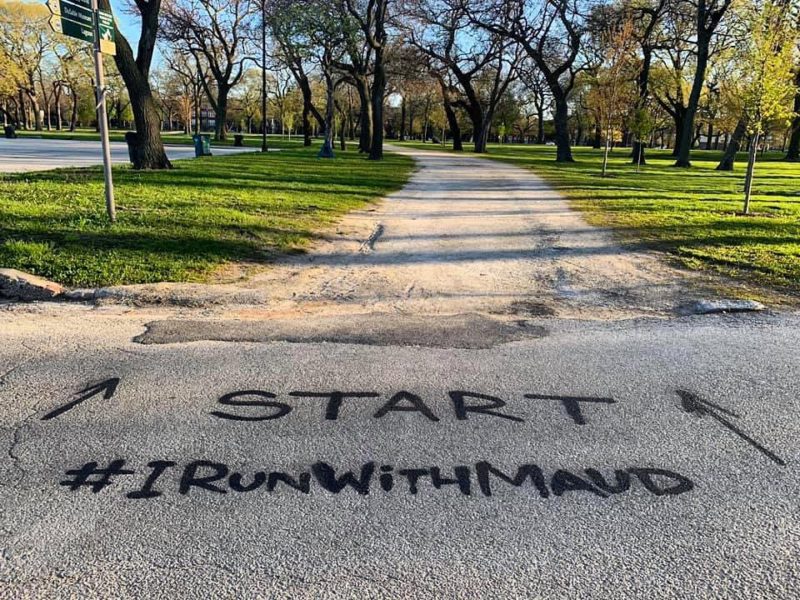
The Break: An Angry Email Reached a Food Writer
“Ahmaud Arbery was killed on Feb. 23, shot while jogging through a neighborhood outside of Brunswick, Georgia,” Tom Jones recalled Tuesday for the Poynter Institute. “Two men — a 64-year-old man and his 34-year-old son — were arrested just last week after a video of the shooting surfaced.
“Even during this time of overwhelming coronavirus coverage, this story has gripped the nation — a black man minding his own business chased and gunned down in the street in broad daylight by two white men who assumed he was a criminal.
“But the story has only blown up in recent days. What happened in the days and weeks immediately following the shooting? Why didn’t this story explode right after it happened?
“In a compelling episode of ‘The Daily’ (audio and transcript) — The New York Times podcast, — as well as David Leonhardt’s Monday morning Times’ newsletter, we learn how the story went from being largely ignored to one of the biggest stories in the country. . . .”
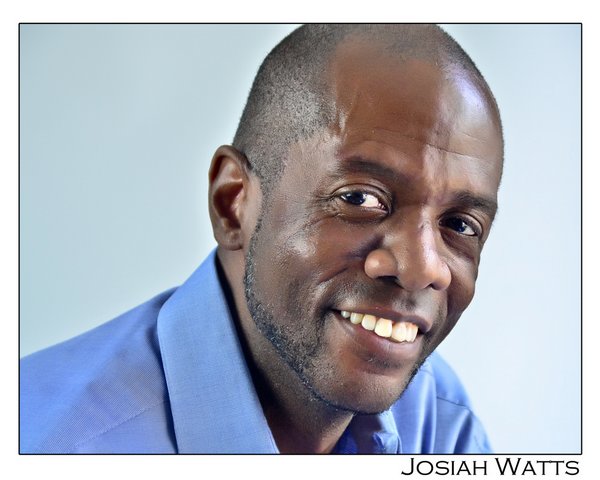 Leonhardt wrote in his newslettter, “In early April, more than a month after Arbery’s death, an actor and writer named JL Josiah Watts aka ‘Jazz’ (pictured) sent an anguished email to [Kim Severson,] a food writer for The Times who had met him while reporting a story several years ago. Watts explained that a cousin of his — Arbery — had been chased, shot and killed by two men, and nobody had been arrested. The men are white, and Arbery was black.
Leonhardt wrote in his newslettter, “In early April, more than a month after Arbery’s death, an actor and writer named JL Josiah Watts aka ‘Jazz’ (pictured) sent an anguished email to [Kim Severson,] a food writer for The Times who had met him while reporting a story several years ago. Watts explained that a cousin of his — Arbery — had been chased, shot and killed by two men, and nobody had been arrested. The men are white, and Arbery was black.
“ ‘This is like something from the ’50s,’ Watts wrote. ‘I’m very angry.’
“Severson forwarded the email to Richard Fausset (pictured, below), The Times’s Atlanta bureau chief, and he began looking into it. . . .”
When a new prosecutor announced last week that he thought that the case should be presented to a grand jury for consideration of criminal charges, Fausset told interviewer Michael Barbaro, “For me, it was just a very surreal moment because I’m thinking back to that moment, which is a very private one. I’m in my house. The country is locked down. This email comes. And it has this very controversial legal opinion from a very obscure prosecutor.
 “And I felt like one person in on a conversation in a very closed and constrained system. And now, it seems like this whole story has just been blown out into the open. . . .”
“And I felt like one person in on a conversation in a very closed and constrained system. And now, it seems like this whole story has just been blown out into the open. . . .”
Poynter’s Jones added, “A big reason it took so long for this story to become a major one: where it happened. Brunswick, Georgia, isn’t quite in a news desert, but it’s close. It’s more than an hour from Jacksonville, Florida — the closest major metro area. But the Jacksonville paper really doesn’t cover Brunswick. A Jacksonville TV station — WJAX — has been covering the story. There is a paper in Brunswick — The Brunswick News, which lists a staff of nine journalists and only four news reporters. . . .
“Journal-Constitution deputy managing editor Leroy Chapman (pictured below) told me, ‘We’re not as present as I would like to be and certainly as we would be under normal circumstances — before coronavirus.’
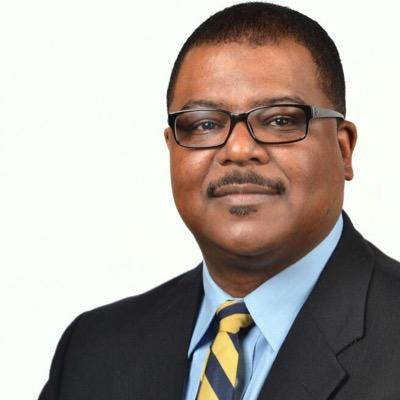 “With Brunswick out of the media spotlight, it’s no wonder the story flew under the radar for such a long time. If it hadn’t been for the Arbery family reaching out to the media, some good hustle by the New York Times and [Atlanta Journal-Constitution] and then, most of all, the video of the shooting, this story might have very well have disappeared.”
“With Brunswick out of the media spotlight, it’s no wonder the story flew under the radar for such a long time. If it hadn’t been for the Arbery family reaching out to the media, some good hustle by the New York Times and [Atlanta Journal-Constitution] and then, most of all, the video of the shooting, this story might have very well have disappeared.”
- Hector Luis Alamo, Latino Rebels: They Killed Me in Georgia
- Adelle M. Banks, Religion News Service: Religious leaders decry, question death of Ahmaud Arbery after video surfaces
- Jelani Cobb, New Yorker: We Are Living in the Age of the Black-Panic Defense
- Hayley Fowler, Charlotte Observer: Deputy accused of leading armed mob of vigilantes to black teen’s home, NC lawyer says
- Dahlen Glanton, Chicago Tribune: Do murder charges in the Ahmaud Arbery killing signify a turning point for America? Not when other young black men still walk in his shoes.
- Suzette Hackney, Indianapolis Star: ‘Please come get me!’ — Facebook Live police shooting victim’s final act
- Aaron Henry, medium.com: Are All White Americans Police Officers?
- Sherrilyn Ifill, Washington Post: We must confront the inconsistent laws that allow black lives to be taken with impunity
- Natasha Lennard, the Intercept: The Perversity of Needing to See Ahmaud Arbery Die on Video to Recognize That His Black Life Mattered
- Clarence Page, Chicago Tribune: The Ahmaud Arbery shooting: Video should not be required for racial justice
- Natalia Mehlman Petrzela, New York Times: Jogging Has Always Excluded Black People
- Leonard Pitts Jr., Miami Herald: If ‘good’ white people don’t decry Arbery’s death, then, maybe, you’re not that good
- Rob Savillo and Lis Power, Media Matters for America: Fox covered jailed salon owner 2 hours more than slain jogger Ahmaud Arbery
- Corey Williams and Rick Callahan, Associated Press: Indiana shootings strain relationship between police, blacks
Ethnic Media Looking to Congress for Help
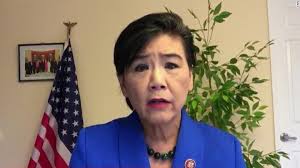 Ethnic media received a sizable chunk of the $16 million that the Facebook Journalism Project announced last week would be given to local news organizations, but efforts continue on Capitol Hill to bail out these struggling news operations.
Ethnic media received a sizable chunk of the $16 million that the Facebook Journalism Project announced last week would be given to local news organizations, but efforts continue on Capitol Hill to bail out these struggling news operations.
They argue that they need the money both as businesses and as outlets with First Amendment responsibilities. They say the populations they reach are underserved.
“This month I joined with the chairs of the Congressional Black, Hispanic and Native American Caucuses in urging congressional leadership to include relief for local and ethnic media in any future COVID-19 relief legislation,” Rep. Judy Chu, D-Calif. (pictured), chair of the Congressional Asian Pacific American Caucus, said in a webcast Tuesday of the Washington-based Multicultural Media Correspondents Association.
“Specifically, we called for the direct appropriation of emergency funding and federal advertising dollars to support ethnic and local news media so they can continue to deliver uninterrupted news to those in need,” Chu said at the event, “Beyond Coronavirus: The Road Ahead for Diverse Media.”
“We also called for language directing all federal agencies to review their communications practices and make sure they’re working effectively to reach non-English-speaking populations who rely on ethnic media.
“Although I learned today that that specific language did not make it into the HEROES Act that we [in the House of Representatives] will vote on Friday, the bill does include other protections that we fought for, and that includes an amendment to the Paycheck Protection Program that makes certain local news media eligible to receive a covered. loan [one that meets the requirement of the Paycheck Protection Program] to provide the continued provision of local news , information and content and emergency information as well. And it classifies media workers as essential workers who are eligible for a pandemic premium pay.
“We cannot afford to leave communities of color and vulnerable populations [without] life-saving information during a crisis like this. So you can count on me and my tri-caucus colleagues to keep fighting to ensure that multicultural media outlets receive the support they need to weather this pandemic.”
Chances for passage are up in the air.
“The relief package overall is a long shot to become law, as leaders in the Republican-controlled Senate already have pushed back against some of its provisions, including funding for state and local governments,” Ted Johnson wrote Tuesday for Deadline.
- Michael Balderston, TV Technology: Media Eligible for Paycheck Protection Program in Latest Relief Plan
- Heather Caygle, Sarah Ferris and John Bresnahan, Politico: Pelosi unveils $3 trillion coronavirus relief plan amid squeeze from left and right
- J. Cunningham, National Newspaper Publishers Association: Black-Owned Businesses demand share of federal dollars as COVID-19 rages on (May 2)
- Robert Feder, robertfeder.com: Independent media outlets launch joint fundraiser
- Marty Johnson, the Hill: News outlets sue for information on small-business loans program
- Jeffrey M. Jones, Knight Foundation: Americans Support COVID-19 Relief for Local News
- News Media Alliance: Statement: Alliance Applauds Inclusion of SBA Waiver for News Publishers in Fourth Stimulus
NABJ Cancels Webinar Over Huawei Sponsorship
The National Association of Black Journalists canceled a webinar that was to feature CNN commentator Van Jones and musician will.i.am after objections that Huawei Technologies Co., a Chinese company accused of stealing intellectual property from U.S. firms, was sponsoring it.
NABJ’s Tuesday statement said the webinar, which had been scheduled for Wednesday, “has become a distraction from other priorities.
“It had come under attack because controversial technology giant Huawei was planning to sponsor the webinar though it had no editorial control. NABJ always retains editorial control over all such content along with final say over moderators and panelists. Huawei knew all of this in advance. Additionally, Huawei officials were not part of the scheduled webinar.”
“Seasoned journalist and CNN’s Van Jones was a panelist and NABJ’s Roland Martin was the moderator for the webinar. They were to be joined by panelists will.i.am, musician, entrepreneur and philanthropist, and Dr. Ebony Hilton, a noted medical professional at the University of Virginia. They were all poised to talk about the purveyance of information regarding COVID-19. . . .”
Jones tweeted Tuesday, “I said ‘yes’ without knowing sponsor. Glad NABJ canceled; I wouldn’t have participated.”
I accepted invite to participate in NABJ webinar, warning black community about #COVID misinformation. I said “yes” without knowing sponsor. Glad NABJ canceled; I wouldn’t have participated. I’ll keep raising alarm about pandemic’s impact on vulnerable people. #StaySafe #StayHome https://t.co/CtIodwQfzZ
— Van Jones (@VanJones68) May 12, 2020
Patricia Hurtado explained Tuesday for Bloomberg, “Huawei, one of the world’s largest makers of smartphones and networking equipment, and Chief Financial Officer Meng Wanzhou have been fighting charges filed in 2019 that they evaded U.S. sanctions on Iran and lied to U.S. authorities. Prosecutors in February unveiled a revised indictment that added racketeering charges tied to allegations the company conspired to steal intellectual property from half a dozen U.S. firms.
“The company and lawyers for Meng, who is in Vancouver fighting extradition to the U.S., deny wrongdoing. . . .”
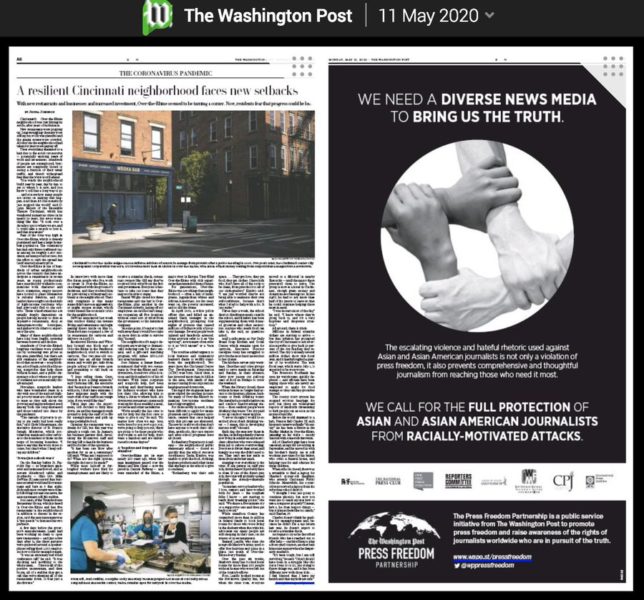
Trump to CBS’ Jiang: ‘Ask China That Question’
“President Trump has a long history of using the bully pulpit to take jabs at reporters. Yet the pandemic-era briefings have become especially fraught — and an unusually barbed exchange with one journalist on Monday raised questions about whether he reserves special contempt for some,” Sarah Ellison and Elahe Izadi reported Tuesday for the Washington Post.
“At a Rose Garden press briefing, CBS News correspondent Weijia Jiang asked the president why he so frequently claims that the United States is doing ‘far better than any other country’ at testing for coronavirus. ‘Why does that matter?’ she asked. ‘Why is this a global competition to you if every day Americans are still losing their lives?’
“Trump started by deflecting — ‘they’re losing their lives everywhere in the world’ — before pivoting suddenly: ‘They’re losing their lives everywhere in the world, and maybe that’s a question you should ask China. Don’t ask me, ask China that question, okay?’
“Jiang, an American journalist of Chinese descent, seemed taken aback and asked, ‘Why are you saying that to me, specifically?’ He replied that he would give the same answer to ‘anybody that asks a nasty question.’ Seconds later, he abruptly ended the news conference and walked off.
“In a moment when Asian Americans have reported being subjected to verbal and physical abuse amid coronavirus fears, and when the president himself has leaned into his anti-China rhetoric, Trump’s slap at Jiang drew widespread attention.
“Roy Gutterman, director of Syracuse University’s Tully Center for Free Speech, called Monday’s outburst ‘another attack on the press, likely calculated to demean the press, divert attention and change the day’s narrative,’ but added: ‘There was probably some dog-whistling in his tirade, too.’ . . . ”
“Meanwhile, there was a full-page ad in Monday’s Washington Post showing support for Asian American journalists,” Tom Jones noted for the Poynter Institute. “The ad said, ‘We need a diverse news media to bring us the truth. … We call for the full protection of Asian and Asian American journalists from racially-motivated attacks.’ The ad was sponsored by The Washington Post Press Freedom Partnership, which is made up of several press freedom and press advocacy groups. . . .”
In addition, NBC Asian America, which is a part of NBCNews.com, was to hold a virtual town hall Wednesday to examine the rise of racism against Asian Americans during the coronavirus pandemic, as well as what can be done about it. The town hall was to include a panel of experts and will be streamed on NBC Asian America’s website, NBC News’ Twitter and Facebook pages and can also be streamed on Peacock, NBCUniversal’s new streaming service.
- Geoff Herbert, syracuse.com: ‘Ask China’: Trump clashes with SU alumna Weijia Jiang at White House briefing
- Mara Hvistendahl, the Intercept: As Trump and Biden Trade Anti-China Ads, Hate Crimes Against Asian Americans Spike
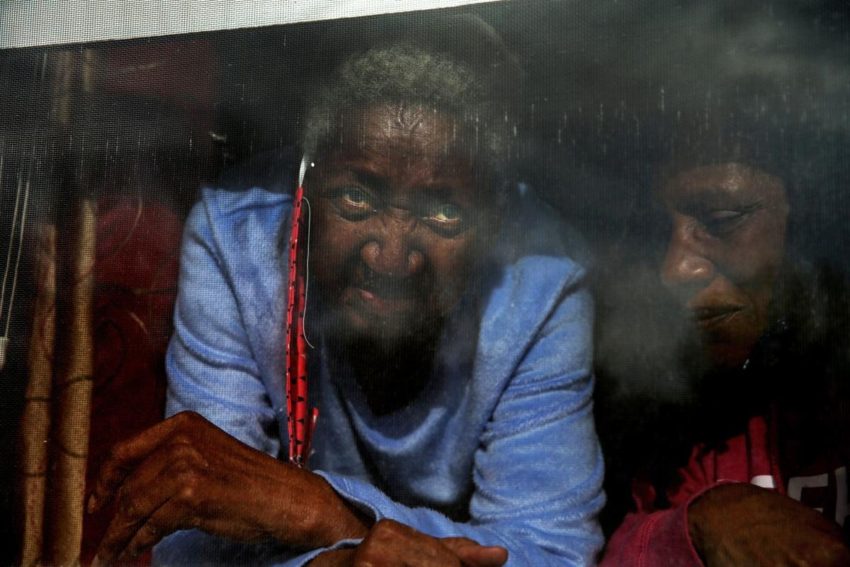
New Source for Racial Data on COVID
“The federal government has stalled on releasing complete data stratifying COVID cases and deaths by race and ethnicity,” Frieda Wiley wrote May 5 for Yes! Magazine.
“Their delay prompted organizations such as [APM Research Labs], along with state and local governments, to conduct their own research, and most recently the COVID Racial Data Tracker, a new collaboration of The Atlantic’s COVID Tracking Project and The Antiracist Research & Policy Center.”
Wiley continued, “The COVID Racial Tracker launched April 15, with the sole purpose of collecting, publishing, and analyzing comprehensive COVID-19-related data by race in the U.S. Information is gathered from state, district, and territory public health authorities, as well as trusted news sources. In late April, The Antiracist Research & Policy Center was awarded a $300,000 grant by the Marguerite Casey Foundation to continue their work. . . .”
The Tracking Project site explains, “This project began when Ibram X. Kendi, the executive director of the Antiracist Research & Policy Center, wrote a series of essays in The Atlantic about the urgent need to gather demographic information to understand the outbreak and protect vulnerable communities. The federal government’s failure to assemble this data has left it to us to produce this resource for journalists, researchers, advocates, and the public. . . .”
Kendi, a onetime journalist, is author of the “Stamped From the Beginning: The Definitive History of Racist Ideas in America,” winner in 2016 of the National Book Award for Nonfiction, and the recently released “How to Be an Antiracist.”
Referring to Carmen Rojas, incoming Marguerite Casey Foundation president and CEO, Wiley also wrote, “Without projects such as the COVID Racial Data Tracker, it would be hard to focus on the history of decisions that caused the vast majority of people affected by this crisis to be people of color, Rojas says.
“The tracker includes and also extends beyond Black communities because immigrant families, low-wage workers, people with disabilities, and other communities are all potentially more vulnerable to COVID-19 than the general population.
- Michelle Alexander, New York Times: Let Our People Go
- Jon Allsop, Columbia Journalism Review: Coronavirus testing is a freedom of information issue
- Associated Press: AP Fact Check: Trump’s perfect China ‘ban,’ death toll myths
- Associated Press: Data shows virus death risk twice as high for black Britons
- Hawa Ba and Ayisha Osori, allafrica.com: COVID-19 in West Africa — Credible Information As A Vaccine Against Misinformation?
- Rekha Basu, Des Moines Register: As Mike Pence visits Iowa, guns and religion factor into the odd politics of COVID-19, reckless calls to reopen
- Jerry Bembry, The Undefeated: Will barbershops and salons survive the coronavirus pandemic?
- Charles M. Blow, New York Times: Covid-19’s Race and Class Warfare (May 3)
- Ashwanee Budoo, Nieman Lab: In Africa, government attempts to fight misinformation are also limiting freedom of expression
- Elvia Díaz, Arizona Republic: What part of ‘illegal’ do lockdown protesters in Arizona not understand? (May 1)
- Editorial board, Kansas City Star: Only 6 Kansas inmates released amid COVID-19 outbreak. Why hasn’t Gov. Kelly done more? (May 4)
- Katti Gray, Washington Post: Covid-19 vs. African Americans like me. Our uphill battle to fight coronavirus while grappling with underlying conditions.
- Emil Guillermo, Asian American Legal Defense and Education Fund: The alarming Covid-19 death rate of Pacific Islanders (May 6)
- Monika Martinovic, International Press Institute: Pandemic exacerbates repression of independent journalism in Cuba (May 7)
- Riyad Mathew, International Press Institute: How IPI members are facing the COVID-19 challenge: India
- Abdul-Aliy Muhammad, Philadelphia Inquirer: As coronavirus devastates black communities and workers, how do we protect their stories?
- Askia Muhammad, Washington Informer: A Word More Powerful Than Ku Kluxers’ Guns
- National Institutes of Health: Latest information on coronavirus
- Ruben Navarrette Jr., Washington Post Writers Group: California letting us down
- Andrés Oppenheimer, Miami Herald: Under pressure of COVID-19, Venezuela a ticking time bomb waiting to explode (April 29, updated May 1)
- Benjamin Oreskes, Los Angeles Times: Coronavirus testing has come to skid row. But what happens when infected patients disappear?
- Jeneé Osterheldt, Boston Globe: Black restaurant owners in Boston want to see relief on the menu
- Terry Parris Jr., Ann Choi, Derek Kravitz, Anjali Tsui and Keith Cousins, The City: Help Us Tell the Stories of the New Yorkers We’ve Lost to COVID-19
- Dorany Pineda, Los Angeles Times: Writers’ groups struggling under COVID-19 appeal to L.A. City Council for help
- Leonard Pitts Jr., Miami Herald: Don’t buy the lie. We’re not ‘all in this thing together.’ Never were (May 5)
- Fabiola Santiago, Miami Herald: Secrecy about coronavirus data leads to one conclusion: We’re on our own in Florida
- Adam Serwer, The Atlantic: The Coronavirus Was an Emergency Until Trump Found Out Who Was Dying
- Student Press Law Center: “Everyone I know has had their internships canceled”: Students face journalism internship and job cuts due to COVID-19
- Alene Tchekmedyian and Richard Winton, Los Angeles Times: L.A. County jail inmates trying to infect themselves with coronavirus, sheriff says
- Matt Thompson, The Atlantic: Surviving This Pandemic Isn’t Enough
- Mariel Turner, The Grio: Byron Allen’s ‘Feeding America Comedy Festival’ provides over 16 million meals
- Erik Wemple, Washington Post: ‘60 Minutes’ cites ‘Tucker Carlson Tonight’ for coronavirus misinformation
- Marc Zarefsky, American Medical Association: Why African American communities are being hit hard by COVID-19

Native American Journalists Cancel Convention
The Native American Journalists Association is canceling its 2020 National Native Media Conference until 2021, the association announced Wednesday.
“The decision to reschedule the annual conference was based on guidelines from the WHO, the CDC and tribal and state officials to ensure the safety of all” because of the coronavirus pandemic, the association said in a statement.
The conference was scheduled for Sept. 13-16 in Phoenix. Executive Director Rebecca Landsberry messaged Journal-isms, “We hadn’t yet had anyone registered for 2020 so no losses there. . . as I’ve been saying ‘we shall PIVOT!’
“We had around 250 in Minneapolis, Minnesota for the 2019 National Native Media Conference last year and 800 total between the NAJA and partnering nutrition conferences,” Landsberry said.
The National Association of Black Journalists and National Association of Hispanic Journalists announced last month that their joint convention, scheduled for Washington in July, will be held virtually Aug. 5-9.
The Asian American Journalists Association conference is still scheduled for July 29-Aug. 1 in Washington. In an April 1 message to the membership, AAJA National President Michelle Ye Hee Lee said, “It’s an extremely uncertain time. We can’t control the trajectory of this global pandemic or foresee what travel and social-distancing restrictions will look like for the remainder of the year. . . . “
St. Paul Columnist Rubén Rosario Won’t Be Replaced
Rubén Rosario, a self-described “nycrican” — New York Puerto Rican — who last month ended 23 years as a columnist for the Pioneer Press in St. Paul, Minn., will not be replaced, Mike Burbach, editor and vice president, messaged Journal-isms on Tuesday.
 “As you and I both know all too well, times keep getting tighter,” Burbach said.
“As you and I both know all too well, times keep getting tighter,” Burbach said.
In his farewell column April 17, updated April 18, Rosario wrote, “I had two professional loves of my life. My first love was the tabloid New York Daily News, the paper I grew up reading and where I began in 1976 as a freshly minted college-educated copyboy sorting mail, placing horse bets and fetching coffee, beer and sandwiches for reporters and editors at what was then the newspaper with the largest circulation in America.
“I worked a 7:30 p.m. to 3 a.m. shift for a time as a sports tabulator, anxiously waiting for the late baseball scores to arrive from the West Coast before I could put that data-driven sports page to bed and ride the No. 7 and then the No. 1 subway line back home. Damn those traitor Dodgers and Giants, and other left coast teams. That job was followed by a non-stop, adrenaline-filled 11-year stint chasing scoops, too many murders and intriguing cases while competing with rivals from three other dailies as a crime-and-courts reporter.
“Then came my second love, the three-time Pulitzer Prize-winning broadsheet affectionately called the PiPress, where I have spent the past 28 years and eight months as a city editor, public safety team leader and metro columnist. . . .”
Rosario added, it’s “the columns about lesser-known folks that stick with me. . . .”
Jill Nelson Wants Apology and a Meeting
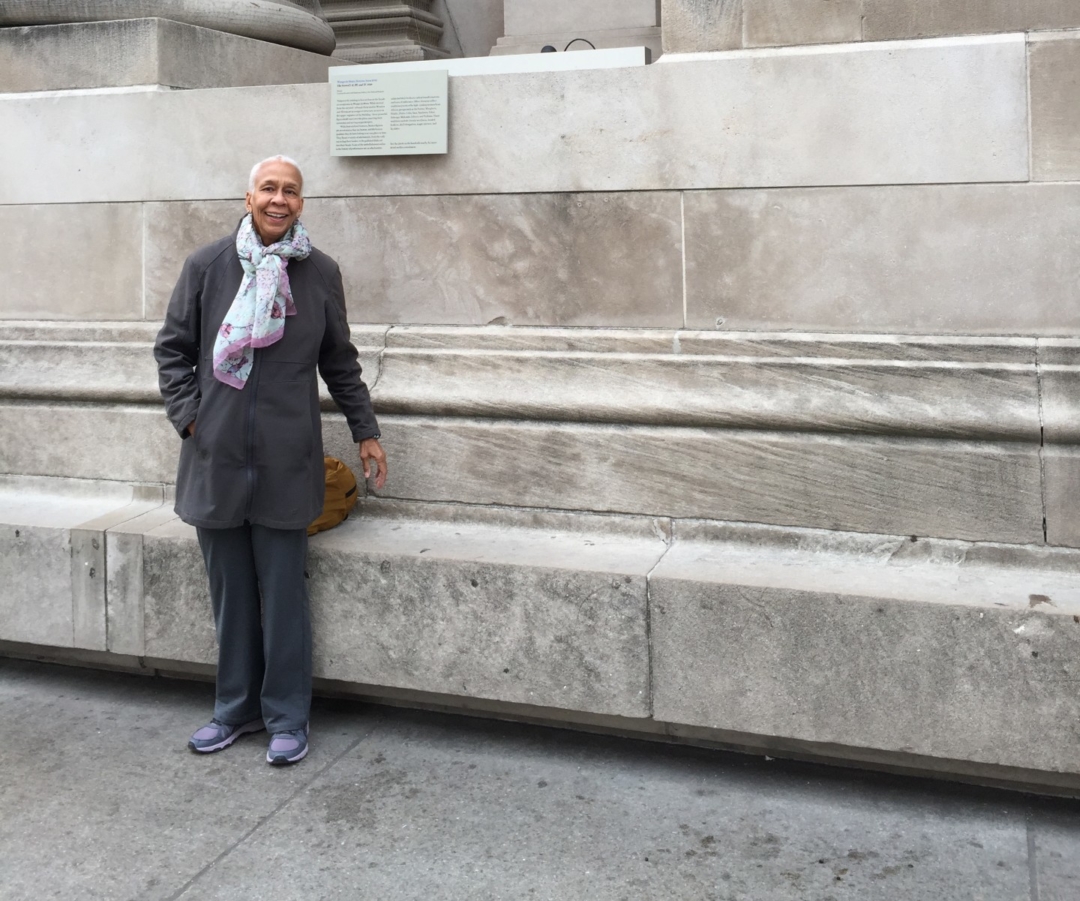 Writer Jill Nelson (pictured), who accuses the New York Police Department of “police overreach and the stifling of dissent” after her arrest last month for writing graffiti, has retained Norman Siegel, former executive director of the New York Civil Liberties Union, as her lawyer.
Writer Jill Nelson (pictured), who accuses the New York Police Department of “police overreach and the stifling of dissent” after her arrest last month for writing graffiti, has retained Norman Siegel, former executive director of the New York Civil Liberties Union, as her lawyer.
Siegel told host Amy Goodman Monday on “Democracy, Now! “We’re asking the Manhattan district attorney — we’ll begin some telephone conversations in the next week — to dismiss the charges.
“We want whatever record exists because of what happened in April to be expunged. We want an apology to Ms. Nelson. And finally, Ms. Nelson has requested a meeting with the precinct commander of the 33rd Precinct in Manhattan, so she could sit down and have a discussion with the police commissioner — the police commander to talk about the affirmative things that the Police Department can do during the COVID-19 period in the Washington Heights community.
“Ms. Nelson is an outstanding, as you said, Amy, scholar, activist. And she’s giving voice to people who are suffering, directly or indirectly, similar kind[s] of inappropriate actions by some of the police officers of the New York City Police Department. . . .”
Nelson has a court appearance Aug. 14.
Boston Globe’s Ron Hutson, 72, Dies of COVID
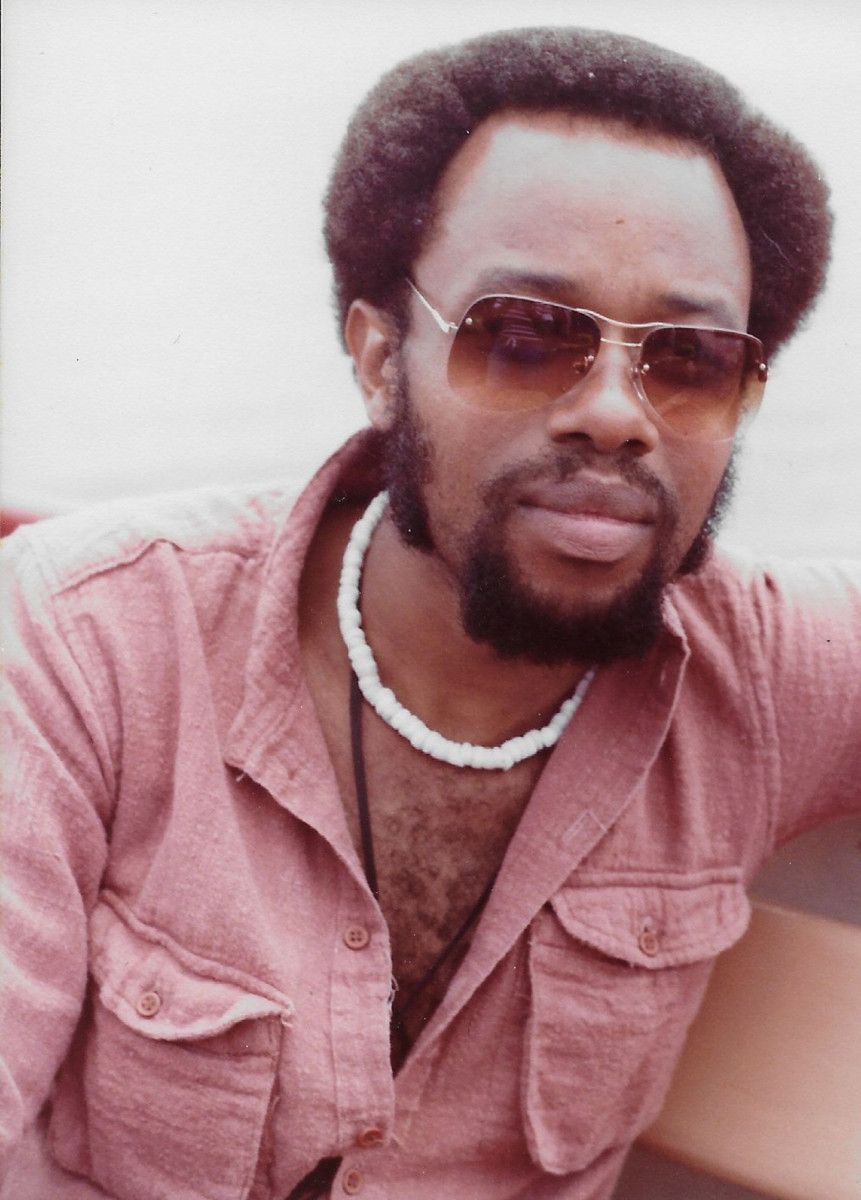 “As a Boston Globe reporter during the early years of court-ordered busing to desegregate the city’s schools, Ron Hutson (pictured) examined race relations from a variety of perspectives,” Bryan Marquard reported May 7 for the Globe.
“As a Boston Globe reporter during the early years of court-ordered busing to desegregate the city’s schools, Ron Hutson (pictured) examined race relations from a variety of perspectives,” Bryan Marquard reported May 7 for the Globe.
“He wrote about the first Black family to live on a particular block in Dorchester’s Codman Hill neighborhood, the last white woman to keep her home on a section of Roxbury’s Julian Street, the racial tension between white and non-white families on South Boston’s Carson Beach, and a Pittsfield neighborhood where most of that city’s Black population had lived for more than a century.
“Then there was the 17-year-old white student who defied a boycott and traveled for an hour by bus, subway, and foot from his Dorchester home to attend Roxbury High School in 1974. ‘I didn’t know what to expect when I came,’ he told Mr. Hutson ‘but this was just like any other regular school day for me.’
“Illuminating ordinary moments that might otherwise go unnoticed amid extraordinary circumstances was a hallmark of Mr. Hutson’s reporting, which was part of the Globe’s coverage of school desegregation that was awarded the Pulitzer Prize for public service in 1975.
“Mr. Hutson, who also was an editor on a series that was awarded a Pulitzer in 1984, died April 28 in Morton Hospital in Taunton of COVID-19. He was 72 and had lived in Taunton.
“Though his Pulitzer-winning contributions focused on race relations — the 1984 award honored a Globe team for local investigative specialized reporting — Mr. Hutson’s writing ranged widely geographically and in terms of the topics he chose. . . .”
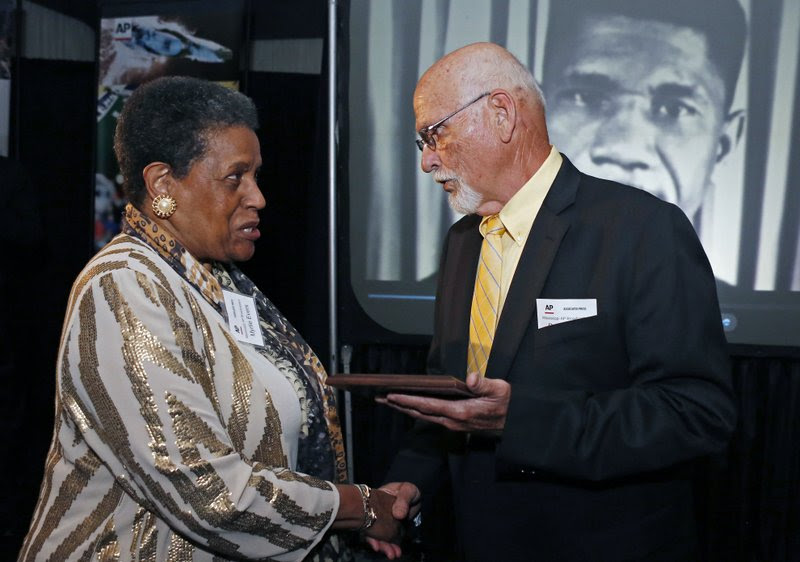
Ron Harrist, AP Civil Rights Reporter, Dies at 77
“Ron Harrist, who covered Elvis Presley, black separatists, white supremacists and college football legends during his 41 years as a reporter and editor in Mississippi for The Associated Press, died of complications from leukemia at his home in Brandon early Saturday, his son Andy Harrist said. He was 77,” Jeff Amy reported Saturday for the AP.
“ ‘Ron was absolutely one of the nicest, funniest, most generous people I have ever worked with. He was also a wise and gifted journalist who covered convulsive change and epic stories that have shaped the South as we now know it,’ said Brian Carovillano, vice president and managing editor for The Associated Press.
“Born in Tampa, Florida, Harrist moved with his family to Brandon, Mississippi when he was a child. He attended Mississippi College and began teaching junior high school after earning an education degree. But a night job working for The Clarion-Ledger and Jackson Daily News prompted him to change his career. He joined the AP in 1968, covering a state still struggling to adapt to the reality of equal citizenship for African Americans.
“Longtime Mississippi newsman Bill Minor remembered that he and Harrist, both white men, went together to cover the protracted boycott of white-owned businesses by blacks in the southwest Mississippi town of Port Gibson. It eventually resulted in a landmark U.S. Supreme Court case ruling that states can’t stop peaceful boycotts.
“ ‘When we headed toward a church on the edge of town where black boycotters were supposed to gather later, a highway patrolman pulled up beside by the car and said something like “Don’t let sunset catch y’all in town,” ‘ Minor remembered in 2009.
“Harrist interviewed members of the black separatist Republic of New Afrika at their headquarters before a police raid sparked a shootout with the group, accompanied Gov. Bill Waller Sr. and his wife to meet Elvis during a Jackson benefit concert in 1975, and covered the 1994 trial of Byron De La Beckwith when he was found guilty of murdering civil rights leader Medgar Evers in 1963. . . .”
Sunday Is Deadline to Nominate a J-Educator
Beginning in 1990, the Association of Opinion Journalists, formerly the National Conference of Editorial Writers, annually granted a Barry Bingham Sr. Fellowship — actually an award — “in recognition of an educator’s outstanding efforts to encourage minority students in the field of journalism.”
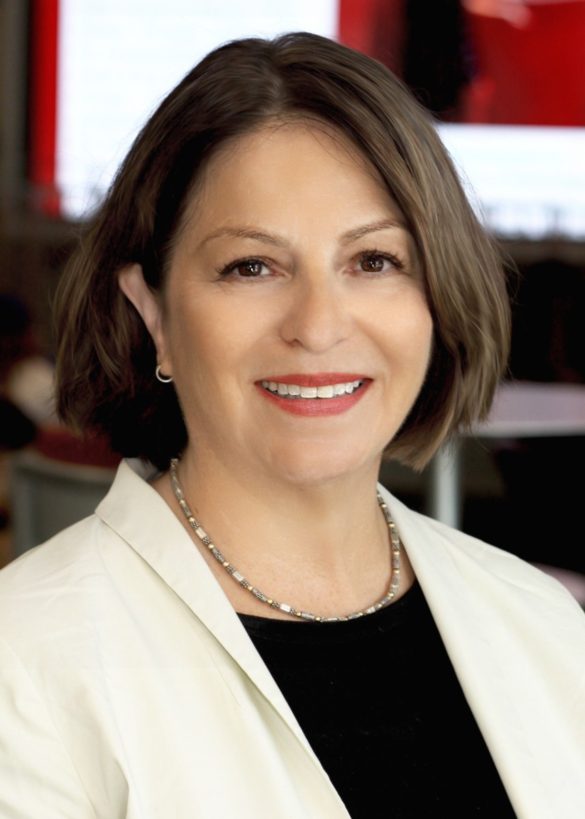
AOJ merged in 2016 into the American Society of News Editors, which as the News Leaders Association is continuing the Bingham award tradition.
Since 2000, the recipient has been awarded an honorarium of $1,000 to be used to “further work in progress or begin a new project.”
Past winners include James Hawkins, Florida A&M University (1990); Larry Kaggwa, Howard University (1992); Ben Holman, University of Maryland (1996); Linda Jones, Roosevelt University, Chicago (1998); Ramon Chavez, University of Colorado, Boulder (1999); Erna Smith, San Francisco State (2000); Joseph Selden, Penn State University (2001); Cheryl Smith, Paul Quinn College (2002); Rose Richard, Marquette University (2003).
Also, Leara D. Rhodes, University of Georgia (2004); Denny McAuliffe, University of Montana (2005); Pearl Stewart, Black College Wire (2006); Valerie White, Florida A&M University (2007); Phillip Dixon, Howard University (2008); Bruce DePyssler, North Carolina Central University (2009); Sree Sreenivasan, Columbia University (2010); Yvonne Latty, New York University (2011); Michelle Johnson, Boston University (2012); Vanessa Shelton, University of Iowa (2013); William Drummond, University of California at Berkeley (2014); Julian Rodriguez of the University of Texas at Arlington (2015) (video); David G. Armstrong, Georgia State University (2016) (video); Gerald Jordan, University of Arkansas (2017), Bill Celis, University of Southern California (2018) and Laura Castañeda, University of Southern California (2019).
Nominations may be emailed to Richard Prince, Opinion Journalism Committee, richardprince (at) hotmail.com. The deadline is May 17. Please use that address only for NLA matters.
Short Takes
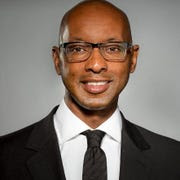 “Gannett Co. Inc.’s president of sales for the Great Lakes Region will lead the joint business operations of The Detroit News and Detroit Free Press, the media publisher said Thursday,” Breana Noble reported for the Detroit News. “Eddie Tyner (pictured), 49, was named president of the Free Press and Michigan.com, effective immediately. Tyner is tasked with overseeing major initiatives to grow the business, including supporting and guarding the interests of The News and Free Press’ combined sales, marketing and business teams under a joint operating agreement called Michigan.com. He also will be the Free Press’ spokesman and support its news teams. . . . Tyner will continue in his role as president of sales for Gannett’s Great Lakes region covering Michigan, Ohio, Indiana and Illinois. . . .”
“Gannett Co. Inc.’s president of sales for the Great Lakes Region will lead the joint business operations of The Detroit News and Detroit Free Press, the media publisher said Thursday,” Breana Noble reported for the Detroit News. “Eddie Tyner (pictured), 49, was named president of the Free Press and Michigan.com, effective immediately. Tyner is tasked with overseeing major initiatives to grow the business, including supporting and guarding the interests of The News and Free Press’ combined sales, marketing and business teams under a joint operating agreement called Michigan.com. He also will be the Free Press’ spokesman and support its news teams. . . . Tyner will continue in his role as president of sales for Gannett’s Great Lakes region covering Michigan, Ohio, Indiana and Illinois. . . .”
- Did Advance Local, owners of The (Cleveland) Plain Dealer and Cleveland.com, set out to bust the union?,” Tom Jones asked Tuesday for the Poynter Institute. “If so, the plan worked. In a statement released on Twitter on Tuesday, the Plain Dealer News Guild wrote, ‘After more than 80 years of union membership, Plain Dealer journalists will no longer be represented by Local 1. The unit will be dissolved effective May 17. The PD newsroom will no longer exist.’ The union said that The Plain Dealer will lay off the four remaining reporters on May 15 and then offer them jobs at Cleveland.com. . . .”
- Ebony.com, the online presence of the financially troubled Ebony magazine, is back online, although its content is dated. In an April 7 story for The Root, Sabrina Taylor, Ebony’s chief communications officer and head of development, told Jay Connor, “We’re trying to revamp our website because we’re trying to rebrand. We are really working on putting the website back up. We thought it would be down for just two days, but now it’s been down over a week. A lot of that has to do with the coronavirus and our assets. We are working with people who are volunteering to help us change it and update it. . . .”
- ”Little Richard, who died Saturday, showed us what sexuality, queerness and passion looked like onstage,” Myles E. Johnson wrote Sunday for the New York Times. In the Washington Post, fashion writer Robin Givhan wrote, “Little Richard always wanted his due, and he was right to demand it. A man — a black man — must lay claim to the glorious effects of his own peacocking attire, his peerless eyebrows and his magnificent pompadour, otherwise others will write his history and in all likelihood, they will get it wrong. . . .”
 Eric Ferrero (pictured), who served in senior roles at the Innocence Project, the Open Society Foundations, Amnesty International USA and the American Civil Liberties Union, has been named executive director of the Fund for Investigative Journalism, the fund announced Monday. “Ferrero succeeds Sandy Bergo, who retired after serving as FIJ’s Executive Director for 10 years and joined the organization’s Advisory Board.” The fund offers diversity fellowships.
Eric Ferrero (pictured), who served in senior roles at the Innocence Project, the Open Society Foundations, Amnesty International USA and the American Civil Liberties Union, has been named executive director of the Fund for Investigative Journalism, the fund announced Monday. “Ferrero succeeds Sandy Bergo, who retired after serving as FIJ’s Executive Director for 10 years and joined the organization’s Advisory Board.” The fund offers diversity fellowships.
-
 “Just as the mysterious disease was about to manifest itself disproportionately in several urban areas of the country, journalists of color were being announced as taking the helm of investigative news operations or claiming some of the most prestigious investigative journalism awards in the business,” Mark J. Rochester, recently named editor-in-chief at Type Investigations, wrote Wednesday for the Poynter Institute. He named Ron Nixon at the Associated Press; Wendi C. Thomas, founder and editor of MLK50: Justice Through Journalism; and Manny Garcia (pictured) , senior editor of an investigative reporting initiative from the Texas Tribune and ProPublica, among others.
“Just as the mysterious disease was about to manifest itself disproportionately in several urban areas of the country, journalists of color were being announced as taking the helm of investigative news operations or claiming some of the most prestigious investigative journalism awards in the business,” Mark J. Rochester, recently named editor-in-chief at Type Investigations, wrote Wednesday for the Poynter Institute. He named Ron Nixon at the Associated Press; Wendi C. Thomas, founder and editor of MLK50: Justice Through Journalism; and Manny Garcia (pictured) , senior editor of an investigative reporting initiative from the Texas Tribune and ProPublica, among others.
- Andre Harrell, the “founder of Uptown Records, the late ’80s and early ’90s imprint that boldly merged rap and R&B for the clubs and the bedroom, wasn’t just an industry giant, he was the culture’s most sincere and adamant cheerleader,” Keith Murphy wrote for The Undefeated. Harrell died last week at 59. ”Harrell, like another legend we lost, Little Richard, gave us permission to be ourselves,” Jeneé Osterheldt wrote Saturday in the Boston Globe. “They gave us nuance, they gave us joy, they soothed our souls, and they gave us their all in music that cannot be contained and will never die. . . .”
-
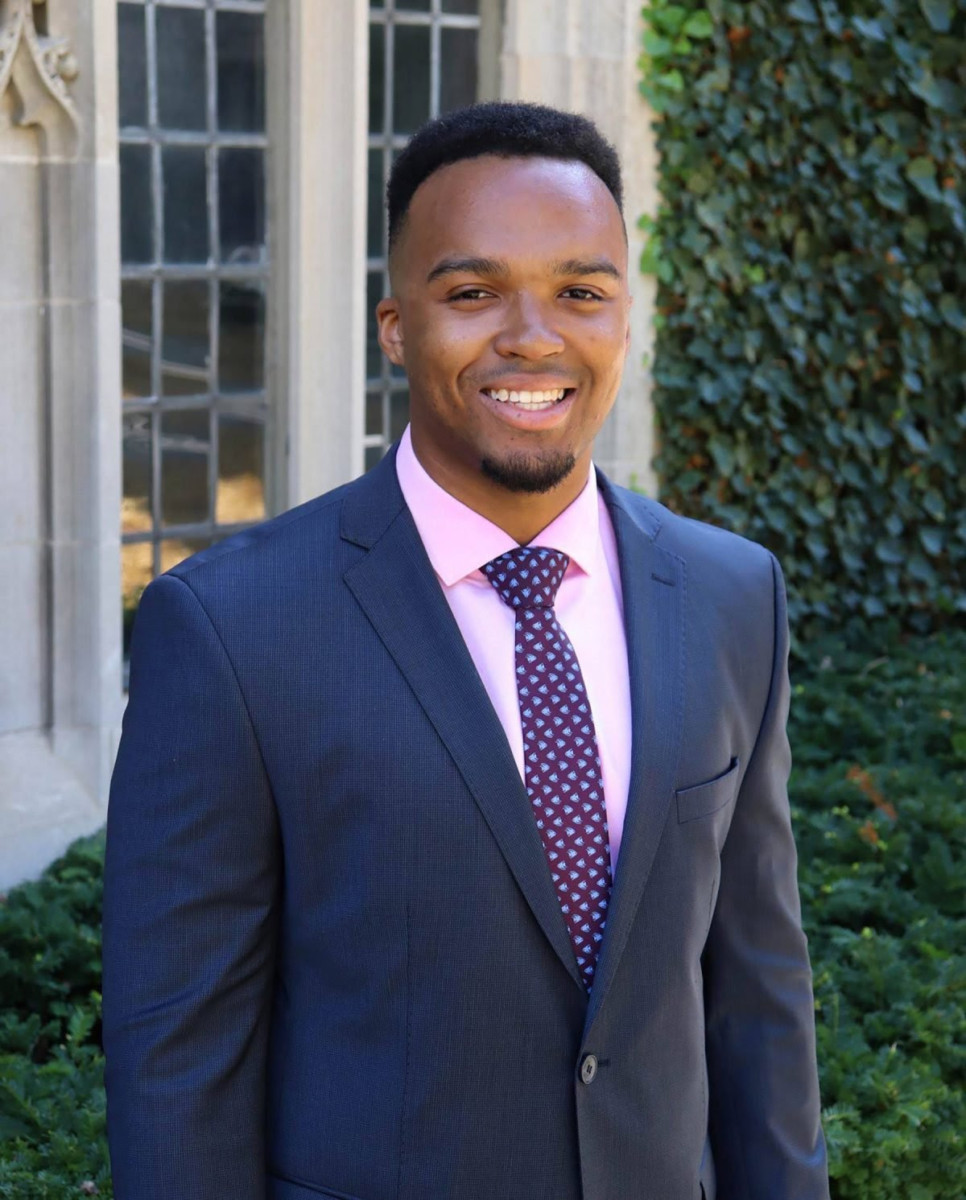 Nicholas Johnson (pictured), who became the first black valedictorian in Princeton University’s 274-year history, gave media outlets the kind of positive news that consumers say they want. The Jamaica Gleaner reported, “the scholar said that it felt empowering being the first black valedictorian given Princeton’s historical ties to the institution of slavery and said he hopes his achievement motivates other black students. . . .”
Nicholas Johnson (pictured), who became the first black valedictorian in Princeton University’s 274-year history, gave media outlets the kind of positive news that consumers say they want. The Jamaica Gleaner reported, “the scholar said that it felt empowering being the first black valedictorian given Princeton’s historical ties to the institution of slavery and said he hopes his achievement motivates other black students. . . .”
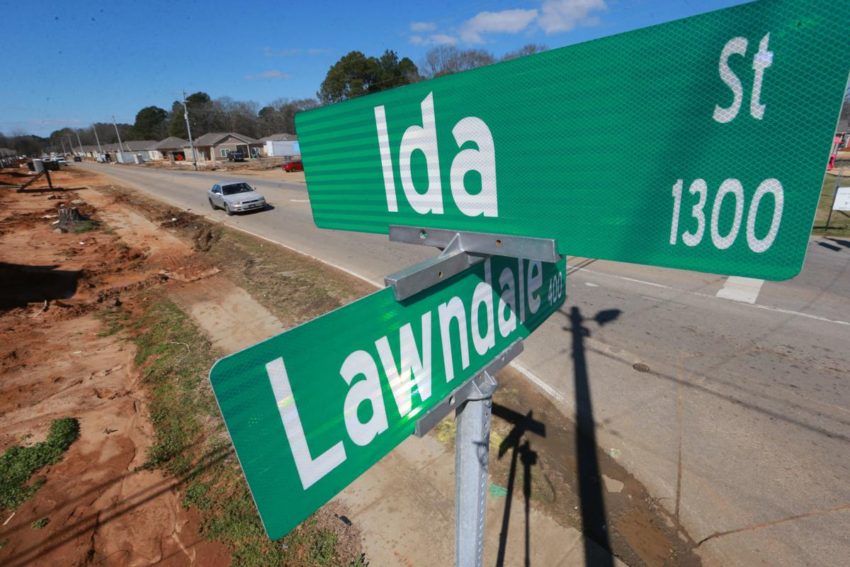
- “About a month ago we launched SRPUnerased, a digital destination to showcase trials and triumphs of women whose stories have not been fully told,” Gwen McKinney, president and CEO, wrote Journal-isms. “Check out our mission here. In this Centennial milestone of women’s voting rights, it’s not useful to talk about women’s suffrage without telling herstory – full, unvarnished and unerased. . . .”
-
 “La Voz Chicago, a free Spanish-language news website and daily email newsletter, will be launched Sunday by the Sun-Times,” Robert Feder reported for his Chicago website on the media. “Jacqueline Serrato (pictured), editor-in-chief of the not-for-profit South Side Weekly, has been hired to help oversee the La Voz a las dos newsletter, story selection and the La Voz Chicago social media feeds. . . .”
“La Voz Chicago, a free Spanish-language news website and daily email newsletter, will be launched Sunday by the Sun-Times,” Robert Feder reported for his Chicago website on the media. “Jacqueline Serrato (pictured), editor-in-chief of the not-for-profit South Side Weekly, has been hired to help oversee the La Voz a las dos newsletter, story selection and the La Voz Chicago social media feeds. . . .”
- ”I saw [Michael] Jordan play in person more times than I recall, interviewed him on countless occasions, and was one of many sports journalists who chronicled the NBA through its transition from an almost-niche sport whose championship games aired on tape delay to . . . being second only in global popularity to soccer,” Roy S. Johnson wrote May 5 in his column for al.com. Johnson shared with readers his favorite Jordan moment — when the two had an empty gym to themselves. On Sunday, ESPN re-airs episodes 7, 8, 9 and 10 of its 10-part documentary on Jordan, “The Last Dance.”
-
 Editors at the New York Times made this announcement about Lauretta Charlton (pictured), who joined the Times National desk in 2018 as editor of its Race/Related newsletter: “When we needed volunteers to help in Hong Kong at the outset of the coronavirus outbreak, Lauretta didn’t hesitate to raise her hand and jump on a plane — with two huge suitcases filled with P.P.E. for the office. During the course of her three-week stint, she proved herself invaluable, working on news, enterprise, the live briefing, and whatever else we tossed her way. . . . Lauretta was a perfect fit, and we are now thrilled to welcome her to a permanent assignment in the Hong Kong newsroom as an editor, working with correspondents across the region. . . .”
Editors at the New York Times made this announcement about Lauretta Charlton (pictured), who joined the Times National desk in 2018 as editor of its Race/Related newsletter: “When we needed volunteers to help in Hong Kong at the outset of the coronavirus outbreak, Lauretta didn’t hesitate to raise her hand and jump on a plane — with two huge suitcases filled with P.P.E. for the office. During the course of her three-week stint, she proved herself invaluable, working on news, enterprise, the live briefing, and whatever else we tossed her way. . . . Lauretta was a perfect fit, and we are now thrilled to welcome her to a permanent assignment in the Hong Kong newsroom as an editor, working with correspondents across the region. . . .”

- Last June, five female anchors and reporters at the New York cable news channel NY1 sued their employer, alleging systemic gender and age discrimination,” Diana Falzone reported May 7 for Vice News. Falzone also wrote, “The women — Roma Torre, Amanda Farinacci, Vivian Lee, Jeanine Ramirez, and Kristen Shaughnessy — say management and several of their colleagues have engaged in repeated attempts to isolate and further sideline them since they went public with their stories. . . .”
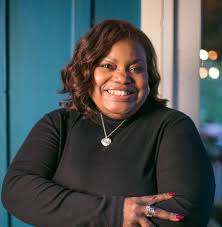 Tracie Powell (pictured), program officer of the Racial Equity in Journalism (REJ) Fund at Borealis Philanthropy, was honored as an “Unsung Hero” Tuesday by the Multicultural Media Correspondents Association (video, 56:39.) “There’s probably no one in America right now that is more committed or who is doing more to secure needed funding for publishers of color,” said David Morgan, co-founder of the organization. Powell said that working for “a more equitable and representative news media” has been her life’s work. “Multicultural media organizations are the organizations that have the trust of multicultural communities. and the information and content they provide is more critical and necessary than ever. . . “
Tracie Powell (pictured), program officer of the Racial Equity in Journalism (REJ) Fund at Borealis Philanthropy, was honored as an “Unsung Hero” Tuesday by the Multicultural Media Correspondents Association (video, 56:39.) “There’s probably no one in America right now that is more committed or who is doing more to secure needed funding for publishers of color,” said David Morgan, co-founder of the organization. Powell said that working for “a more equitable and representative news media” has been her life’s work. “Multicultural media organizations are the organizations that have the trust of multicultural communities. and the information and content they provide is more critical and necessary than ever. . . “
(Credit: YouTube)
- “The Alliance for Women in Media Foundation (AWMF) has unveiled the 100 winners of the 45th annual Gracie Awards,” Dino-Ray Ramos reported Wednesday for Deadline. “The Gracies recognize exemplary programming created by, for and about women in radio, television, and interactive media.” Among the honorees were “The Gayle King Interview with R. Kelly,” CBS News; “Children as passports, the phenomenon behind the humanitarian crisis on the border,” Univision Noticias Digital; “Extreme violence is driving Salvadoran girls to kill themselves,” Univision News Digital and Time; “A Child Lost in Translation,” “Latino USA”; Tamron Hall; Soledad O’Brien for “American Injustice: A BET Town Hall” and the “Surviving R. Kelly” producing team, Lifetime.
- “A report in Colombia’s Semana magazine alleging that more than two dozen national and international journalists were spied on by Army intelligence officials has led to uproar and calls for further investigations,” Teresa Mioli reported May 5 for the Knight Center for Journalism in the Americas. “Between February and the first days of December [2019], the activities of more than 130 citizens were the target of what the military called ‘profiles’ and ‘special works,’ ” Semana wrote in the special report, ‘Las carpetas secretas’ (The secret folders), published on May 1. . . .”
- In Venezuela, “After five months of imprisonment, Ana Belén Tovar, editor of the media outlet Entorno Inteligente and operations manager of Venmedios, was released after being detained since last November during a raid on the facilities of Entorno Inteligente, according to various media reports,” Perla Arellano reported May 7 for the Knight Center for Journalism in the Americas. “Human rights and freedom of expression organizations have demanded Tovar’s freedom since the detention. . . .”
- The International Federation of Journalists and its affiliate in Mozambique are calling for the immediate and unconditional release of journalist Ibraimo Abu Mabaruco, IFJ reported Tuesday. Soldiers arrested Ibraimo on April 7 after he was leaving his office, IFJ said. “According to the Media Institute of Southern Africa . . . Ibraimo informed his colleagues about his supposed arrest by the armed forces through a text message in which he wrote ‘I was surrounded with soldiers.’ The MISA report further stated that Ibraimo’s work was centered on ‘collecting, processing and publishing information related to population resettlement processes’ . . .”
- The International Press Institute urged Somalia President Mohamed Abdullahi Mohamed “to take immediate steps to end the harassment of journalists and media outlets.” Its April 30 letter said, “According to the information gathered by IPI, nine journalists have been arrested and a number of media outlets closed down in the first four months of 2020, delivering a severe blow to freedom of expression and press freedom in the country ahead of the parliamentary elections this year. . . .”
Facebook users: “Like” “Richard Prince’s Journal-isms” on Facebook.
Follow Richard Prince on Twitter @princeeditor
Richard Prince’s Journal-isms originates from Washington. It began in print before most of us knew what the internet was, and it would like to be referred to as a “column.” Any views expressed in the column are those of the person or organization quoted and not those of any other entity. Send tips, comments and concerns to Richard Prince at journal-isms-owner@yahoogroups.com
View previous columns (after Feb. 13, 2016).
- Diversity’s Greatest Hits, 2018 (Jan. 4, 2019)
- Book Notes: Is Taking a Knee Really All That? (Dec. 20, 2018)
- Book Notes: Challenging ’45’ and Proudly Telling the Story (Dec. 18, 2018)
- Book Notes: Get Down With the Legends! (Dec. 11, 2018)
- Journalist Richard Prince w/Joe Madison (Sirius XM, April 18, 2018) (podcast)
- Richard Prince (journalist) (Wikipedia entry)
- February 2018 Podcast: Richard “Dick” Prince on the need for newsroom diversity (Gabriel Greschler, Student Press Law Center, Feb. 26, 2018)
- Diversity’s Greatest Hits, 2017 — Where Will They Take Us in the Year Ahead?
- Book Notes: Best Sellers, Uncovered Treasures, Overlooked History (Dec. 19, 2017)
- An advocate for diversity in the media is still pressing for representation, (Courtland Milloy, Washington Post, Nov. 28, 2017)
- Morgan Global Journalism Review: Journal-isms Journeys On (Aug. 31, 2017)
- Diversity’s Greatest Hits, 2016
- Book Notes: 16 Writers Dish About ‘Chelle,’ the First Lady
- Book Notes: From Coretta to Barack, and in Search of the Godfather
- Journal-isms’ Richard Prince Wants Your Ideas (FishbowlDC, Feb. 26, 2016)
- “JOURNAL-ISMS” IS LATEST TO BEAR BRUNT OF INDUSTRY’S ECONOMIC WOES (Feb. 19, 2016)
- Richard Prince with Charlayne Hunter-Gault,“PBS NewsHour,” “What stagnant diversity means for America’s newsrooms” (Dec. 15, 2015)
- Book Notes: Journalists Follow Their Passions
- Book Notes: Journalists Who Rocked Their World
- Book Notes: Hands Up! Read This!
- Book Notes: New Cosby Bio Looks Like a Best-Seller
- Journo-diversity advocate turns attention to Ezra Klein project (Erik Wemple, Washington Post, March 5, 2014)

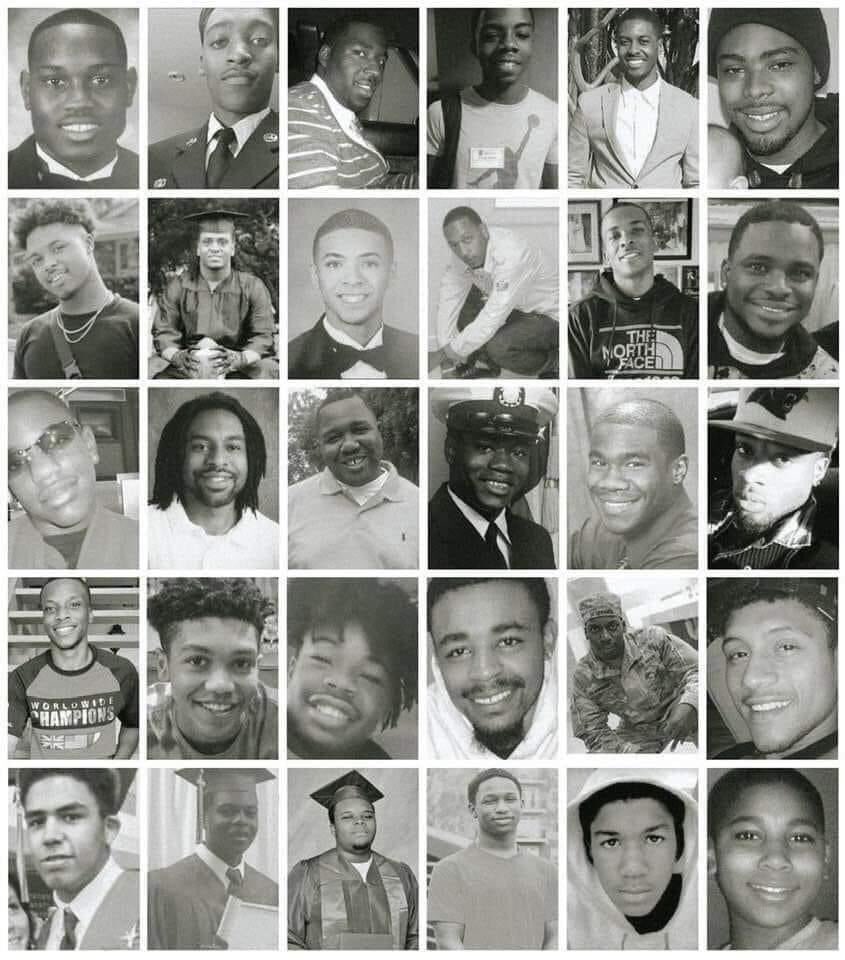
1 comment
From Ron Thomas at Morehouse College”
I owe much of my career to Albert. The Daily News hired me in 1975 to cover the Big 10, Notre Dame and Chicago-area colleges after only two years as a prep writer in Rochester. I was 26 and way over my head as, I believe, the first black sportswriter the paper ever had. I was just a lamb; thank goodness Albert was my shepherd.
There were a few older white staffers just waiting for me to fail. Without Albert, my spirit might have gotten crushed. But he always kept me informed about who was trying to undermine me and about office politics (which I knew nothing about). Plus, he was one of the funniest people I ever met.
I lasted until the Daily News folded in 1978, giving me just enough experience to get hired by the San Francisco Chronicle to start a nearly 30-year stay in the Bay Area. Meanwhile Albert, who died at 82, worked at the Daily News and Sun-Times for 49 years until he retired last year. He’s a first-ballot inductee into my personal Hall of Fame.